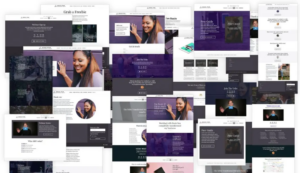
Video Learning for Coaches
In the ever-evolving field of coaching, staying relevant and effective requires continuous learning. As a coach, you understand the importance of expanding your skills and knowledge to better serve your clients. While traditional methods like books and workshops remain valuable, incorporating video learning into your professional development offers unique advantages that can significantly enhance your coaching practice.
Video learning : Engaging and Interactive
Video content brings learning to life by combining visual and auditory elements, creating an engaging and immersive experience. As a coach, you can see techniques in action, hear expert explanations, and absorb information in a way that feels both dynamic and interactive. This multisensory approach often leads to a deeper and more intuitive understanding of concepts compared to text-based learning alone. By watching videos, you can observe the nuances of coaching strategies, body language, and client interactions, which are sometimes difficult to convey through written materials.








